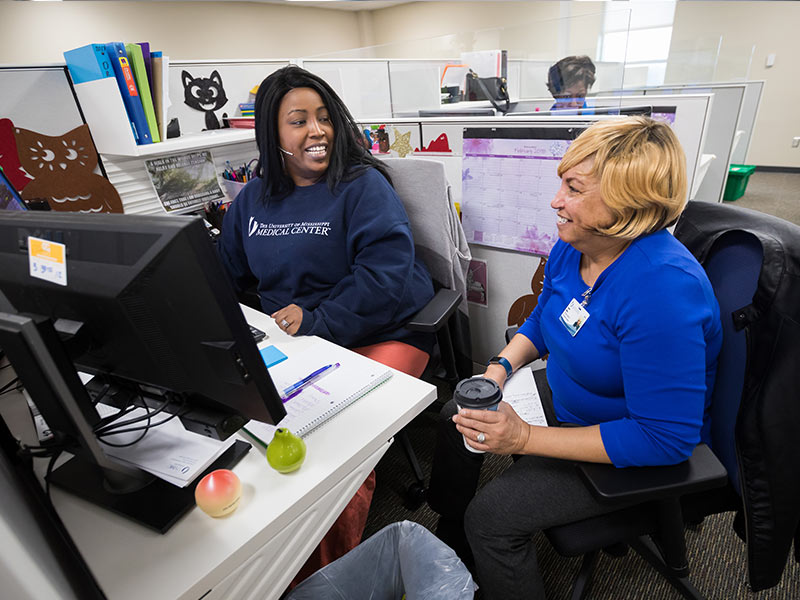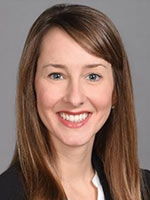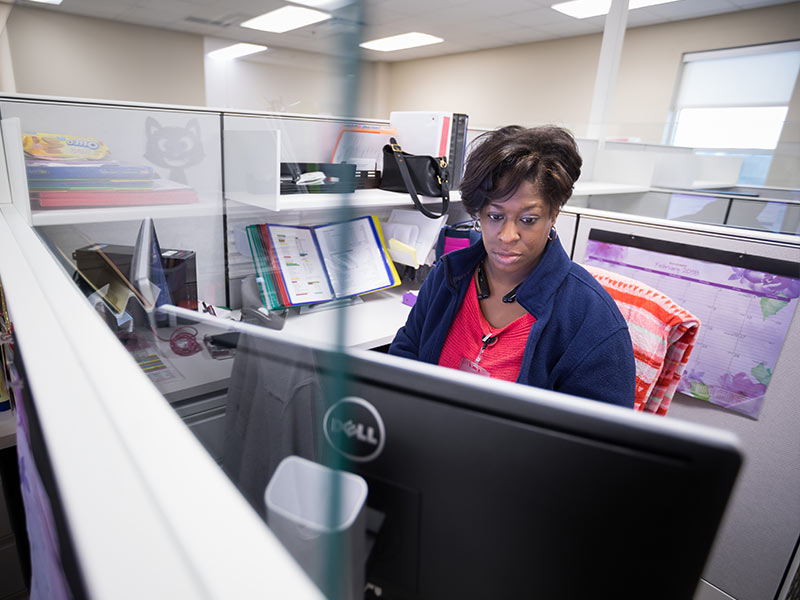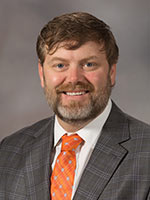New access center improves patients' scheduling experiences

Say hi to “Jay Mack,” a friend to University of Mississippi Medical Center patients and the team that takes care of them.
That’s the nickname employees have for the new Jackson Medical Mall Access Center, UMMC’s third location for employees who take calls from patients seeking appointments at adult clinics system-wide. The JMMAC will serve as the trailblazer for optimizing the workflow of those whose voices often make the first impression on patients seeking help from a provider.
Thirty schedulers from UMMC's Clinton business office and departmental clinics on the main campus and Medical Towers will be situated at the Medical Mall by the end of the month, with another 20 to join them over this year.

“We are excited about all the opportunities this additional space gives us,” said Laura Miller, the Medical Center’s access director.
That includes training schedulers at the same time in the same location, giving them the tools to better help patients in a specific medical field – for example, one group of schedulers handling orthopaedics, and another group handling dermatology.
And, new software will be installed to make it easier for schedulers to answer callers’ questions and get them to the right clinic. Patients generally call UMMC’s main number, 601-984-1000, or the number listed for appointments on the umc.edu website, 888-815-2005.

Schedulers generally work for a specific department or division. The JMMAC is initially housing orthopaedics schedulers, then will take in surgery schedulers. “Being a scheduler is a very specific job, and it’s a very specific job to work in a clinic,” Miller said. “I couldn’t run a clinic, and I don’t know if everyone in a clinic can run a scheduling call center. That’s why we have made such a great team.”
JMMAC’s creation is a move in part to identify communication breakdowns that affect the relationship between scheduler and provider. “We see it over and over again,” Miller said. “You have schedulers doing a task who may or may not have worked in a clinic before. You have a physician who went to medical school to learn what they know. You have to get some of that knowledge transferred to a scheduler to help them to effectively schedule.”
How it will work: “We will have a list of providers and what they do. For example, in orthopaedics, Dr. X sees ankles and Dr. Y sees knees. Schedulers today must remember that,” Miller said. “But with the new software, if I call and say I have knee pain, who handles that is right there. This software will allow for shorter training times for schedulers because they won’t have to memorize all of the information. They will have it right at their fingertips.”

Orthopaedic surgeon Dr. Ben Stronach said he’s already seeing improvements, including fewer patient no-shows and a more efficient clinic experience. The new software “has the potential to revolutionize how we are scheduling patients,” said Stronach, an assistant professor. “The best part is many of the changes that are being provided by the access team are institutional, so all providers can benefit.”
Schedulers will be trained in new skills and re-trained in others, Miller said. They’ll practice call quality, from answering the line to their tone of voice to closing the call, and they’ll train in conflict resolution, stress management, effective writing, listening and memory, and team-building.
And, they can prep for leadership roles by learning skills including public speaking, business writing and organization.
“We always say to answer the phone with a smile,” said Stacy Martin, associate access director. “It comes through to the patient you are talking to.”
That’s Shameka Bailey-Ross personified. A four-year orthopaedics scheduler, Bailey-Ross moved to the Medical Mall from cramped quarters in the Medical Towers Building. “It’s exciting when you get to come to a new building,” said Bailey-Ross, who’s seen both sides of the process because she formerly checked in and checked out patients in orthopaedics’ University Pavilion clinic.

It’s easier for schedulers to trouble-shoot technical problems at the Medical Mall, she said. And thanks to a new Epic application, Customer Relationship Manager, Bailey-Ross said she and coworkers have a much better grasp on patient needs versus provider availability.
“Over time, as we capture more data, we can figure out if we need more clinic appointment spots. It will help us know if we need another nurse practitioner, or more clinic time with a particular doctor,” she said. “We can better get them in and not book them so far out. We don’t want them to go elsewhere in town because they have to wait a long time for an appointment.”
Miller and other access directors are making it fun for JMMAC schedulers with team-building events just for them. “There are so many possibilities, from pot lucks to the perks of career development,” she said.
At the end of the day, it’s all about patients and adequate access to care at the Medical Center.
“We have three critical locations because redundancy is important,” Miller said. “If anything were to happen, like a building catching on fire, which has happened, we’d have two points of backup.
“You always want someone answering your phones,” she said. “Patients are calling us, and they always want someone on the other end of the line.”


